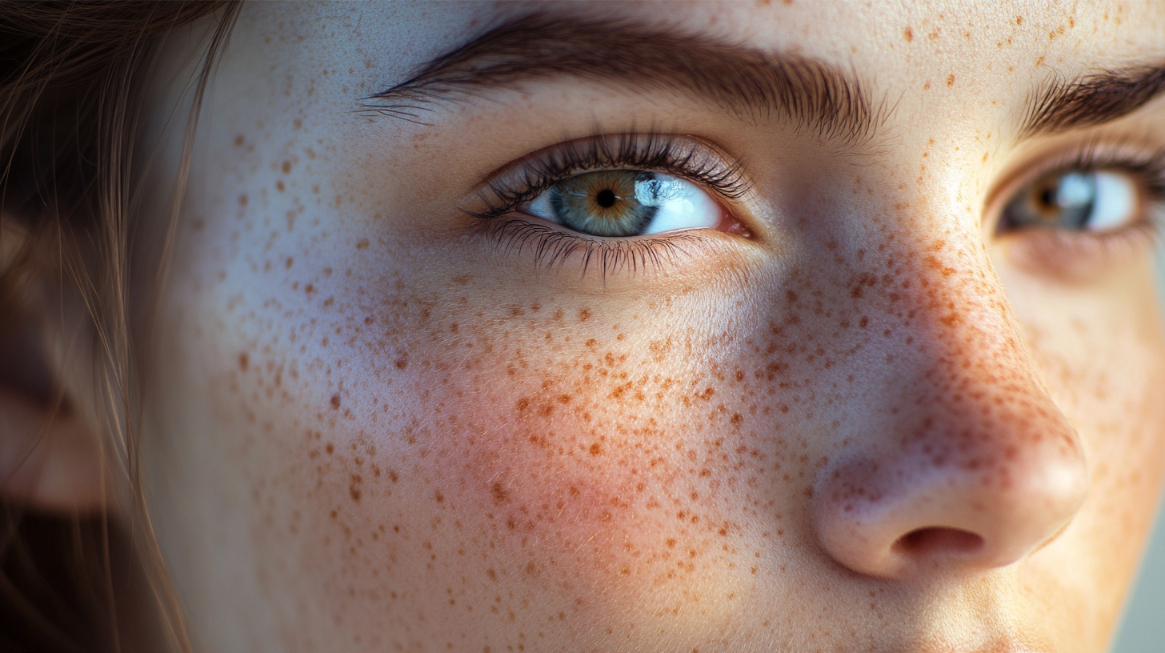Have you ever found yourself wondering if there’s a real solution to the persistent issue of dark spots on your skin? It’s a common concern for many people, whether they’re dealing with post-acne marks, aging spots, or hyperpigmentation. You’ve likely come across countless products and treatments that promise to be the magic remedy you’ve been looking for, but do any of them actually work?
Understanding Dark Spots
Before diving into the solutions, it’s crucial to understand what dark spots are. Dark spots, medically known as hyperpigmentation, occur when specific areas of the skin produce more melanin than usual, leading to a darker appearance. Hyperpigmentation can affect any skin type, but certain factors might make you more predisposed.
Causes of Dark Spots
Dark spots can be caused by various factors. Here are some of the most common culprits:
- Sun Exposure: Years of sun exposure accumulate damage, resulting in sun spots or liver spots.
- Aging: As you age, skin regeneration slows down, causing spots to form.
- Post-Inflammatory Hyperpigmentation (PIH): Often a result of acne, wounds, or other skin inflammations.
- Melasma: Hormonal changes, often during pregnancy.
- Medications: Certain drugs may lead to darkening of the skin.
- Genetic Factors: Sometimes, it’s simply in your genes.
With a clearer understanding of what causes dark spots, we can now look at the solutions available today. Spoiled Laser offers a plethora of services that claim to brighten your complexion, but how effective are they? Let’s break it down.
Get Your Free Consultation Today
Over-the-Counter Solutions
When browsing the aisles of your favorite beauty store, numerous products promise the reduction and removal of dark spots. Here are some common ingredients you might see:
Hydroquinone
A well-known ingredient used for decades, hydroquinone works by decreasing the production of melanin. However, it may not be suitable for everyone and can cause irritation in some users.
Vitamin C
Praised for its antioxidant properties, Vitamin C also brightens the skin. Regular use can lead to a noticeable reduction in dark spots. It’s user-friendly and can be integrated into most skincare routines with minimal side effects.
Retinoids
These vitamin A derivatives boost cell turnover, helping to fade dark spots over time. However, they can be potent, so it’s crucial to start with a lower concentration to gauge your skin’s reaction.
Alpha Hydroxy Acids (AHAs)
These acids, like glycolic acid, exfoliate the skin, promoting the removal of pigmented cells. While effective, they increase your sun sensitivity, necessitating diligent sunscreen use.
Professional Treatments
If you’re seeking quicker and often more impactful results, professional treatments might be the way to go. Spoiled Laser, for instance, provides advanced services tailored to skin concerns like dark spots.
Laser Treatments
Laser treatment is a popular choice for addressing pigmentation issues. Using focused light energy, lasers can precisely target melanin deposits, breaking them down and allowing for their elimination over time. It’s essential to consult a qualified professional to understand laser treatment’s suitability for your skin type.
Chemical Peels
Chemicals peels involve applying a solution to your skin, exfoliating the top layers and promoting new skin growth. The depth and strength of the peel can be adjusted based on the severity of dark spots.
Microdermabrasion
This minimally invasive procedure sands away the outer layer of skin, enhancing skin texture and promoting even tone. It’s less aggressive than chemical peels, making it a suitable option for sensitive skin types.
Cryotherapy
Cryotherapy involves freezing the skin with liquid nitrogen. The frozen tissue subsequently falls off, revealing newer, less pigmented skin. This method is often used for particularly stubborn spots.
Natural Remedies
For those who prefer a more natural approach, there are remedies accessible right in your kitchen. Although less scientifically supported, many people find them beneficial:
Aloe Vera
Known for its soothing properties, aloe vera may also lighten dark spots over time. Applying pure aloe vera gel directly to the skin could provide some relief from pigmentation issues.
Apple Cider Vinegar
This pantry staple contains acetic acid, which might lighten pigmentation. However, caution is advised since it can be quite harsh on the skin if not properly diluted.
Turmeric
Celebrated in traditional medicine, turmeric has anti-inflammatory properties and can illuminate skin when used consistently. Mixing it into a face mask with honey or yogurt might yield subtle results.
Finding What’s Right for You
Navigating the myriad of choices can be overwhelming, but finding the right treatment for your skin is a vital part of the journey. Here are some factors to consider:
- Severity: How noticeable are your dark spots? Minor pigmentation might respond well to topical treatments, while more severe cases could require professional intervention.
- Skin Sensitivity: Understanding your skin’s tolerance will guide you in choosing between gentler or more aggressive treatments.
- Budget: Some treatments, especially professional ones, can be costly. Establish your budget beforehand.
- Patience: While some treatments promise quick results, others might take weeks or even months for noticeable improvement. Consistency is key.
Here’s a quick table summarizing some treatments and their general effectiveness:
| Treatment | Pros | Cons |
|---|---|---|
| Over-the-Counter | Affordable, Accessible | May take longer, less potent |
| Laser Treatments | Targeted, Effective | Expensive, Multiple sessions might be needed |
| Chemical Peels | Powerful, Gradual Improvement | Potential for irritation, recovery time |
| Natural Remedies | Easy, Convenient | Less scientifically proven, Slower results |
The Role of Prevention
An essential part of managing dark spots is prevention. Here are some steps you can take to minimize the formation of new dark spots:
Sun Protection
One of the most effective measures against dark spots is comprehensive sun protection. Wearing a broad-spectrum sunscreen daily, even on cloudy days, helps prevent UV rays from stimulating excessive melanin production.
Skin Care Routine
Maintaining a consistent skincare routine with gentle cleansing and moisturizing can help keep your skin healthy. Incorporate antioxidants and other protective ingredients to combat environmental stressors.
Regular Dermatologist Visits
Regular check-ups with a dermatologist can help you catch and treat pigmentation issues early, reducing their impact over time. They can recommend products or treatments tailored specifically to your skin’s needs.
Conclusion
Addressing dark spots isn’t a one-size-fits-all situation. While various treatments can help, the key is finding the solution that aligns with your skin type, lifestyle, and preferences. Spoiled Laser and other professional services offer powerful options for those seeking effective solutions, and your skincare regimen can also benefit from over-the-counter products and natural remedies.
Remember that patience and persistence are your allies in the quest for a clear, even complexion. With the right approach, removing or significantly reducing dark spots is an achievable goal. Do thorough research, consult with professionals, and tailor your skincare routine to meet your unique needs. The journey to beautiful skin may seem long, but every step brings you closer to feeling confident and radiant in your skin.


